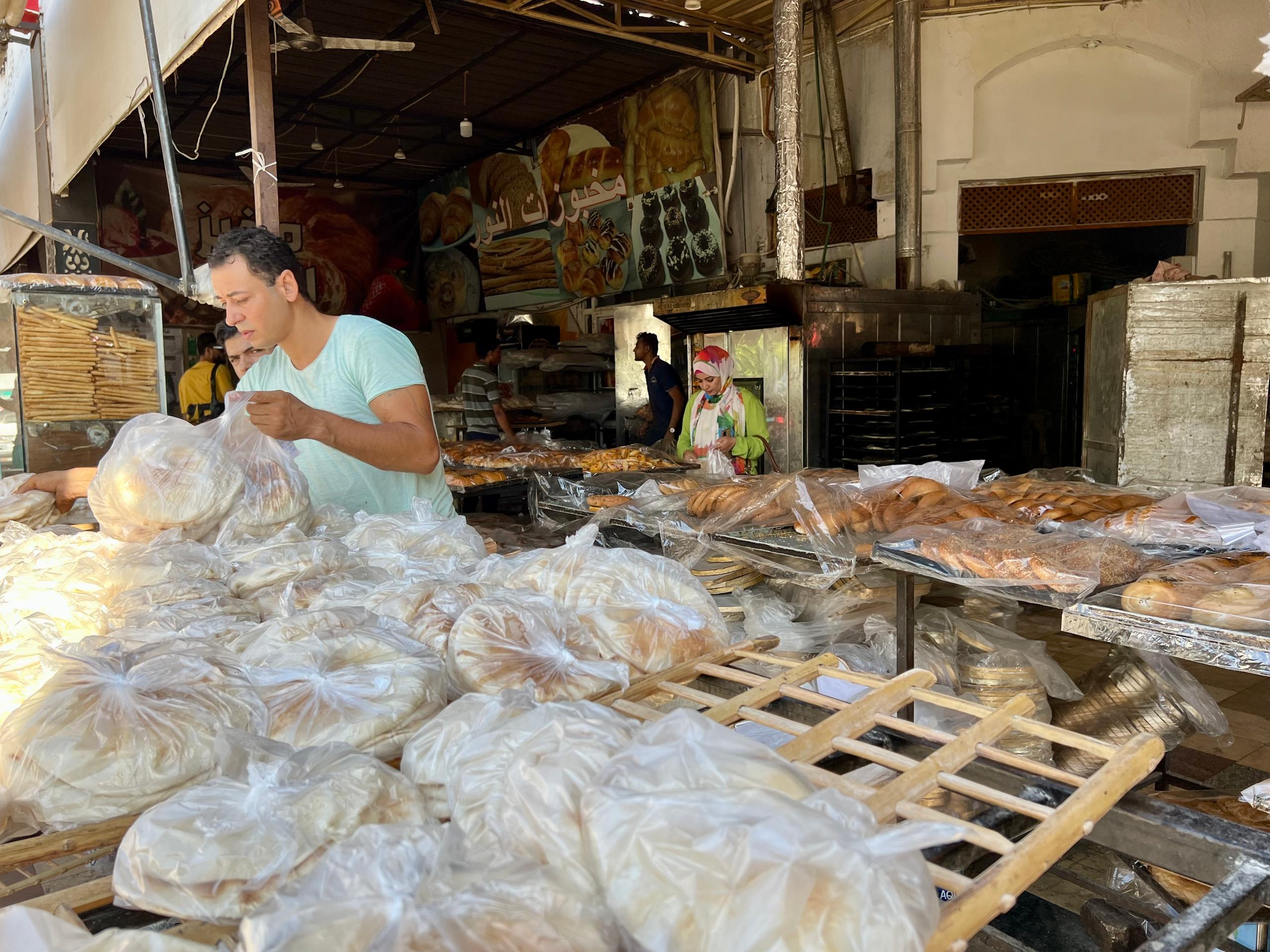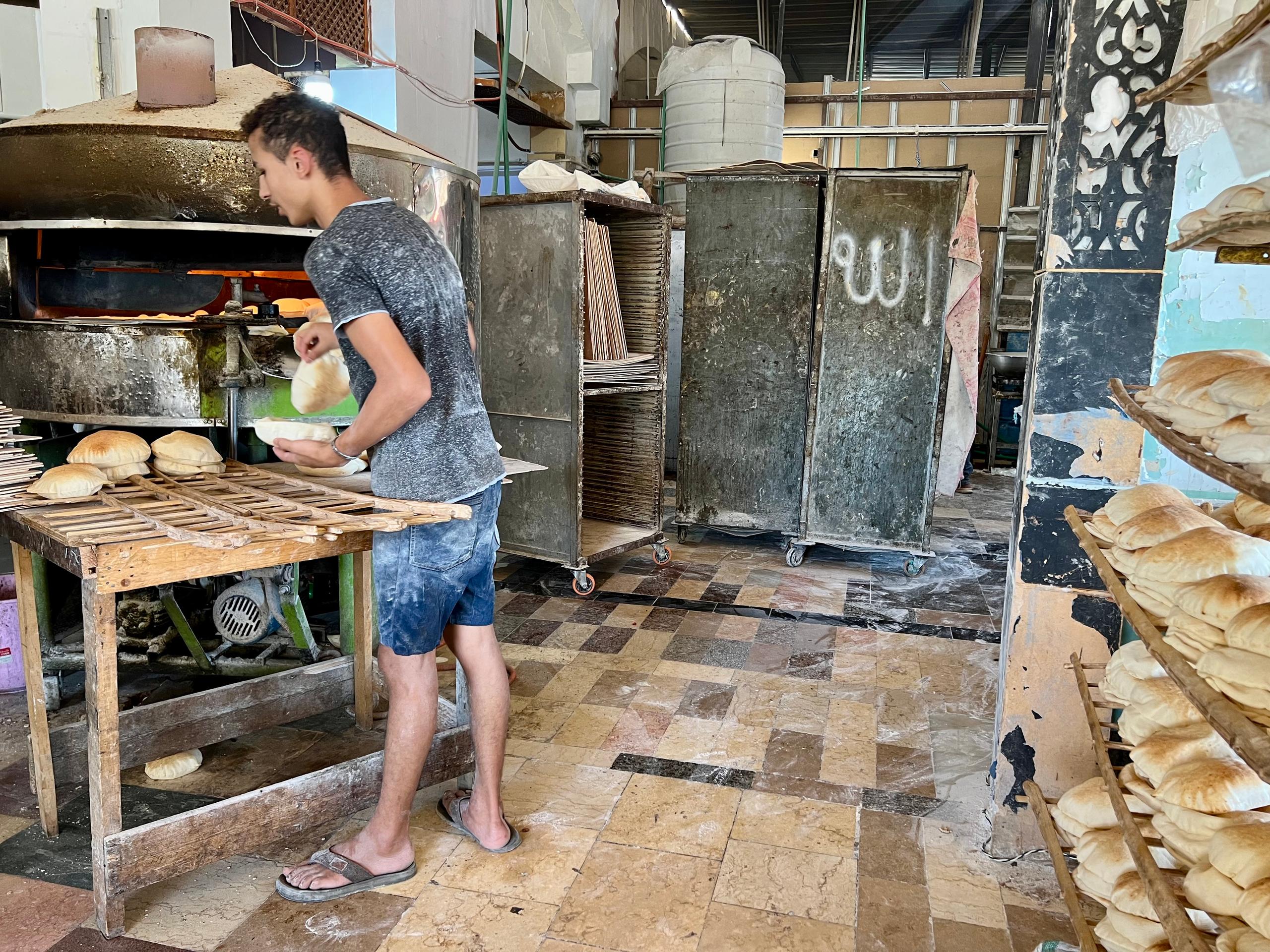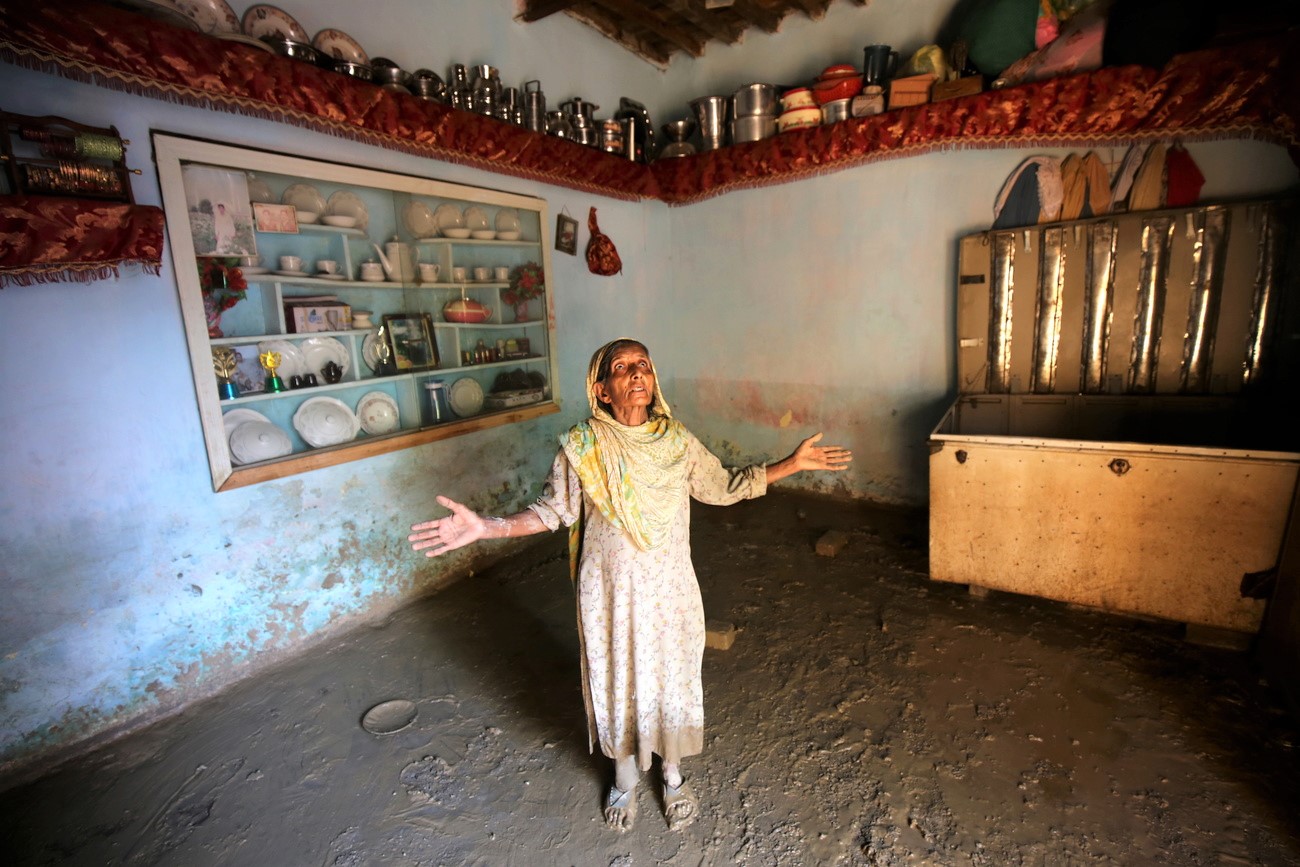War and warming planet put hunger at the heart of COP27

At a popular market in the Egyptian tourist resort hosting the latest round of United Nations climate talks, residents are feeling the strain of rising food prices. Ten kilometres to the north, conference participants, including Switzerland, are grappling with how to respond.
At fault for food price inflation are supply chain disruptions from key sources in Ukraine and Russia, as well as prolonged droughts and rising temperatures in the Nile Delta, Egypt’s own food basket.
“The price of bread has gone up hugely,” said a self-described stay-at-home mother shopping at the El-Nour market’s many bakers. “But everyone always needs it, so people will always buy it.” She said the price has increased three times since shortages earlier this year.
“We don’t have life without bread,” said another customer named Ahman, who is a shopkeeper. This market mostly serves migrant workers from other parts of Egypt employed in the Sharm El-Sheikh tourist resort. Most did not wish to comment publicly on the situation facing their families back home, but their body language hinted at the strain they are under.
Egyptians consume more than double the global average of wheat, at 146 kilogrammes per person per year, according to the Food and Agriculture Organization (FAO).
The African country had imported nearly 85 % of its wheatExternal link from Ukraine and Russia, a source that has largely dried up since the Russian invasion of Ukraine in February. Domestic wheat reserves are part of the country’s Plan B, but those are dwindling as well due in large part to water shortages facing Egyptian farmers after the construction of a new mega-dam on the Nile known as the GERD. The UN has predictedExternal link that the country will run out of water by 2025. This edition of the UN’s annual climate summit, also known as COP27, is taking place in a region with a history of social tensions triggered by food, including during the Arab Spring uprisings in 2011. Participants are aware of the stresses of climate change on food insecurity, making agriculture one of the dominant themes of the talks.

‘Inadequate response’ to grim future
“When climate shocks come, many problems set in,” said Pauline Madiro, secretariat coordinator of the NGO Charter 4 Change in Kenya at a COP27 side event.
Madiro said conflict may arise due to stretched resources among communities displaced by climate change. As has happened in her own country of Kenya, some children may be drawn to join armed groups such as Al-Shabab to find sources of income.
In June the World Food Programme (WFP) reported that roughly 345 million people in more than 80 countries faced acute food insecurity, including in many cases due to climate change and its impacts.
“The current global response is inadequate,” said Brigitte Menzi, head of environment at the Swiss foreign ministry, when addressing COP27 attendees.

More
COP27 and the climate crisis: will rich countries pay?
She said that as a member of the UN Security Council from 2023, Switzerland would encourage better coordination and collaboration among international organisations, and “contribute to a better understanding of the link between food security, climate change, environmental degradation and conflicts”.
COP’s food fight
David Knecht from the Swiss Lenten Fund thinks Switzerland could do more. He said that as part of a COP27 agriculture project known as the Koronivia dialogue, Switzerland should reject any push to remove reference to agroecology from the final text. Agroecology is the application of ecologically sustainable principles to farming, a concept promoted by Swiss NGOsExternal link.
“Switzerland should really support our civil society coalition and countries which would like to ensure that agroecology is one of the techniques promoted for sustainable farming,” Knecht said.
Major retailers and food producers are also present at COP27. Early in the first week, representatives from the world’s biggest food trading companies were back at the annual conference to pledgeExternal link, once again, to cut deforestation from their supply chains after earlier commitments were broken. The companies included COFCO International, Bunge and Cargill, all of which have operations in Geneva.
Saint Francis Tohlang, communications director for East and Southern Africa at Switzerland-based Nestlé, said the food multinational is trying to encourage small-scale farmers with whom it works to adopt regenerative agricultureExternal link methods, such as using organic matter rather than chemical products, to preserve fresh water sources and control pests.

More
COP27: A wake-up call
But Knecht thinks such methods do not go far enough and blamed stalled progress in the agriculture talks on food giants.
“The fight [over agroecology] is happening where lobbyists from big food-producing companies are trying to promote their business model as being sustainable, which we believe is wrong,” Knecht said.
Helping poorer countries adapt
Knecht and the NGO he represents also believe that Switzerland needs to support higher financial contributions to help developing countries adapt with climate change and boost its own contribution.
“It must be new and additional financing and not just shifting from one budget item to another,” Knecht said. He called on the Swiss government to strengthen its development budget, which is independent of climate financing and under pressure amid increased military expenditures.
Developing countries have long demanded that wealthy countries provide them with just as much financing for adapting to climate change as they do for carbon mitigation. Since it was first agreed at the COP15 in 2009 that $100 billion in climate finance should be provided annually by wealthy countries to developing countries, contributions have consistently failed to hit that target.
As the COP27 brought greater visibility to the issue of food and agriculture, Egypt launched a new initiative called the Food and Agriculture for Sustainable Transformation (FAST) that would increase climate finance contributions for food systems. At the time of publication, Switzerland had not yet indicated whether it will get on board.
Edited by Veronica DeVore
More

In compliance with the JTI standards
More: SWI swissinfo.ch certified by the Journalism Trust Initiative


You can find an overview of ongoing debates with our journalists here. Please join us!
If you want to start a conversation about a topic raised in this article or want to report factual errors, email us at english@swissinfo.ch.